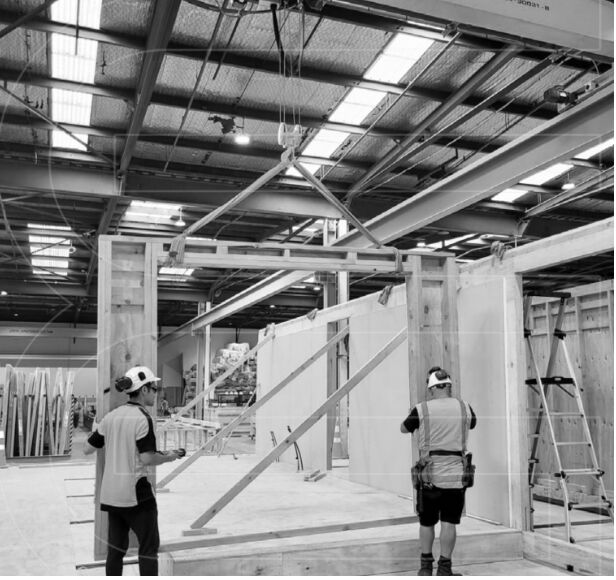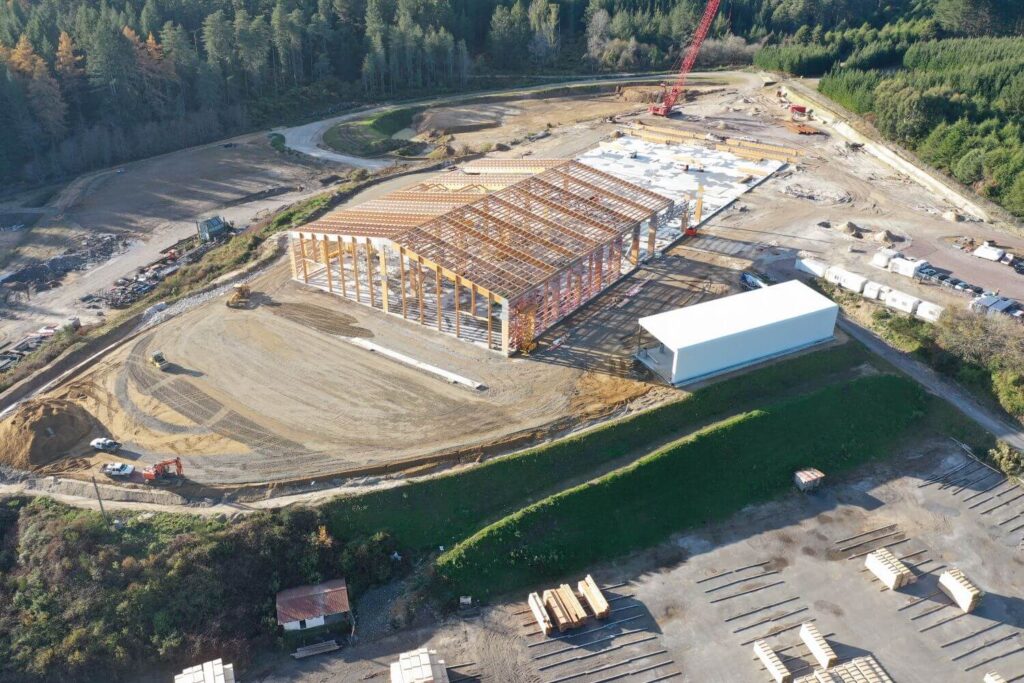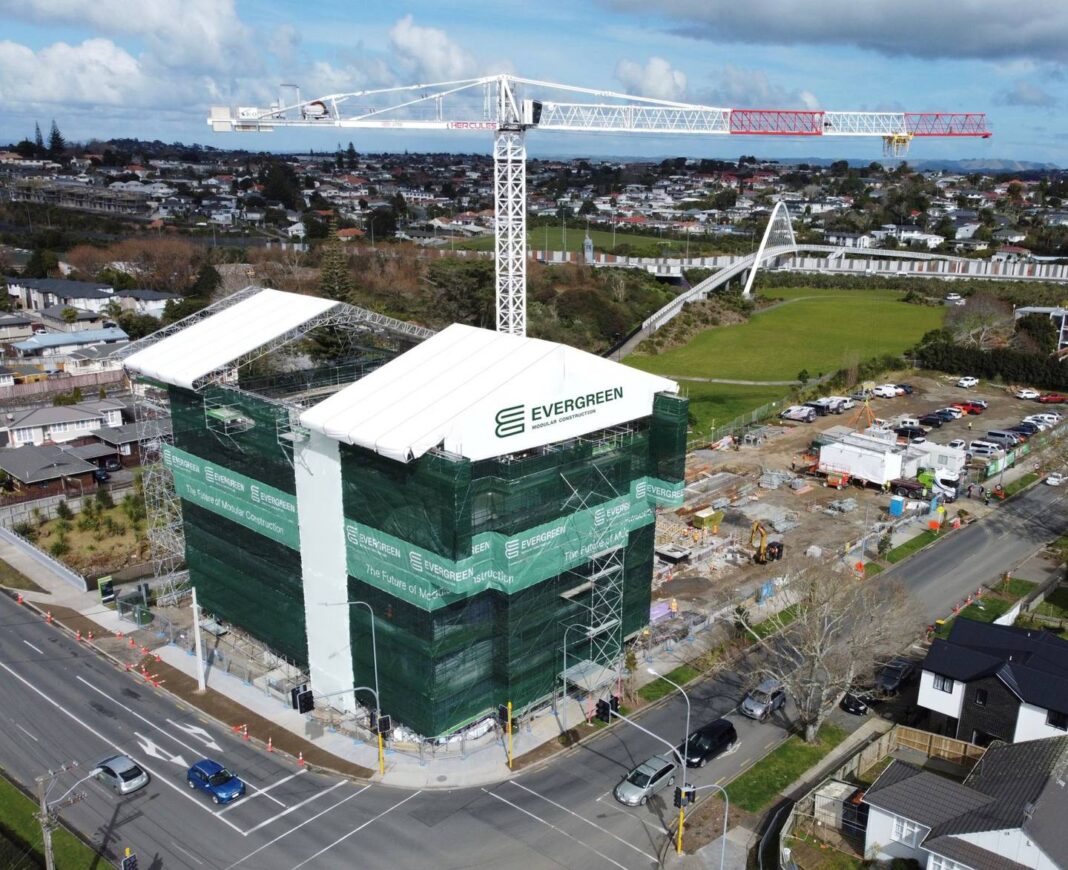NZ is looking to prefab construction and modular housing to meet its billowing demand for housing.
Just days out from the election, National and Labour have committed to building thousands of new houses in major centres, with the OECD reporting that NZ has the world’s least affordable housing market.
The NZ Herald reports that the first of three modular apartment blocks, designed and made in a South Auckland factory but based on a Swedish construction system, are assembled at a Ōwairaka site.
It is now driving affordable accommodation on land sold by the Government to meet Auckland’s future housing needs.
The three blocks will supply 108 new apartments – with at least 50% as social housing through the country’s KiwiBuild initiative.
The NZ Government firmly believes in modular construction, with the Ministry of Business, Innovation and Employment (MBIE) supporting the technology under its construction sector accord.
It claims that the technology could deliver quality housing at pace and scale.
The company behind the push is Evergreen Modular Building, a subsidiary of the Project Partners Groups, which uses a timber volumetric modular construction system similar to that deployed by BloKlok’s manufacturing production methodology in Sweden.
Under the model, buildings are connected by a series of pre-built modules, stacking each on top to build the apartments. The apartment modules are then transported directly from the factory, with up to 95% of the fixtures and fittings already assembled into place.
From a small pilot plant in South Auckland, it aspires to scale up volumes to produce 2,000 apartments and 4,000 modules yearly.
It will service social and affordable housing, retirement and aged care and potentially student accommodation.

According to Steve Mikkelsen, CEO of Property Partners Group, the company investigated offsite manufacturing at scale, researching methods globally, and ultimately decided that the Swedish model was the best to bring to New Zealand.
“We went to the USA, China and Europe, but the Swedish model was right for us,” he said.
“We aligned ourselves with a Swedish company, sharing ideas, etc. We’re working with a consultant from Sweden, exclusive to us, talking to them on every aspect from design to delivery and manufacturing techniques,” according to Mr Mikkelsen, who was reluctant to provide details about the Swedes for fear of competition.
Mr Mikkelsen said the timber modules differed from steel from China, which some rival NZ companies had investigated and imported.

By comparison, Property Partners uses cross-laminated timber panels from Nelson Pine manufactured by Red Stag at its facility in Rotorua – which operates the Southern Hemisphere’s largest mass timber production plant.
Mr Mikkelson proudly told the NZ Herald that the company uses locally sourced and carbon-positive timber volumetric modules, a first for the country.
In the first building, all modules were stacked in place. Then, lift shafts and circulation corridor spaces were completed.
“At the same time, we were also completing the brick veneer and aluminium cladding facade,” he said.
The project is five years in the making, with Project Partners first conducting research on systems in 2018, then developing prototypes (in 2019) and constructing its first three-level apartment complex in 2020.
“This is our learning plant, so we’re looking at systems that can be scaled up to a much larger, purpose-built facility,” Mr Mikkelsen said.
“We’re currently in the mid phases of designing a purpose-built factory with much more capacity. It will be automated.”
Companies are increasingly looking to modular and prefabrication to rationalise the construction process.
Last month, Wood Central reported that hardware giant Bunnings was investing $75 million in new plants to manufacture timber wall frames and roof trusses in a significant shake-up for the Australian timber frame and truss industry.
As reported by the Australian Financial Review, Bunnings has just started production on a 31,000 square metre just-in-time plant in Truganina in Melbourne’s west, which, when fully operational, will produce 2,800 trusses a year.
Wood Central understands that the new facilities will use robots to assemble and nail-plate the A-frame trusses, which IndustryEdge Managing Director Tim Woods said represents a “massive rationalisation” in the residential construction industry.
“The largest participants in the market are making the next logical step, and it could be that some of their thinking is getting ahead of a global trend toward entire houses being built inside factories,” Mr Woods said.
In Växjö, home to the “Swedish model”, BloKlok has supplied the European market with more than 14,000 prefabricated houses.
It claims to have a carbon footprint of less than half of other building projects, recycling “most of [the] leftover materials” and disposing of less than 1% of waste.






